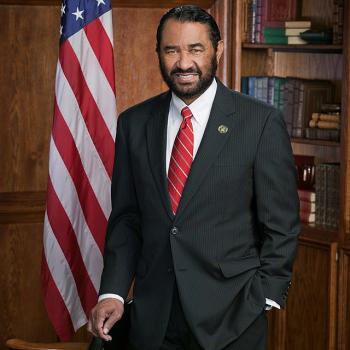
Jesus lived in a hard place in hard times.
It was a time of Empire and heavy-handed political stability. The tiny Republic of Rome had spread from its beginning as a city state to an overarching empire that ruled the world from Persia to what is now the United Kingdom and down through Northern Africa. Rome’s governance ringed the Mediterranean and spread outward from there in all directions in a vast web of trade, dominance and wealth.
It was Pax Romana, bought with blood and held in place by more blood.
Of all the times in which God could have chosen to become incarnate as a human being, this was the first, and for millennia the only, time in which the world was sufficiently navigable by roads and a sustained peace to allow the rapid conversion of humanity to a new faith.
Jesus was born in a tiny conquered country which stood at the crossroads of trade between the East and the West. Egypt was the breadbasket of the ancient world. The area the Israelites called the Promised Land was situated along the only temperate overland route of transport from that bread basket to Rome.
The Jews lived on a plot of ground that was a fulcrum of sorts. Commentaries are fond of calling the area a “backwater,” but in truth, it was a crucial link in the trade routes that fed and sustained the Empire. Mighty Rome needed those routes. The peculiarities of the religious beliefs of the people who lived there were of no consequence to Roman rule unless they incited the believers to disrupt the area and endanger trade.
Pilate was the Governor, the embodiment of Roman military rule and Roman law. Herod was king, a ruthless vassal who enjoyed his position at the pleasure and for the purposes of the conquering Romans.
The priests had long since become corrupted political cyphers. They hung onto their privileges by trading on their ability to influence believing citizens. The Romans saw the power of these priests as an expedience. They used the priests to help them control the people. For their part, the priests used their ability to influence the people through their faith to gain influence for themselves with the Romans.
Ordinary Jews lived in poverty. They paid ten percent of all they had as a Temple tax, and then they paid an invidious Roman tax which was collected by tax gatherers who earned their own pay by adding a charge on top of the taxes that were due Rome.
God chose to be born as a helpless infant into this milieu of poverty, fear, anger and faith. He entered the world in a stable, with the taint of possible illegitimacy hanging over Him, the child of a young girl and her carpenter husband.
His parents had to flee into Egypt to avoid a mass killing of baby boys that was aimed at finding and destroying their child. He was a refugee, a border-crossing immigrant running from persecution. He grew up to be a working man who earned his keep by the labor of his hands. He was a carpenter, whose parents had settled in disreputed Galilee, in the tiny hamlet of Nazareth.
If there is a more inauspicious setting for God to enter human flesh, I don’t know it.
It was a time of extremes — extreme wealth and privilege for a few; extreme poverty for others, and slavery for many.
This humble carpenter from a tiny impoverished town in a conquered nation is our Jesus. He is our only Hope. He is God.
We don’t worship the Romans. There are no eagles on our altars. We don’t put Roman coins or dollar bills in our tabernacles.
God came to us in human flesh of the most humble sort. He was one of the nameless horde of ignored and dismissed humankind just like you and me. He left us a remembrance of His True Self in ordinary bread and wine, the simplest foods of that day.
He lived in a time when life was cheap, in a land ruled by a traitorous and crazy king and a ruthless military governor. The clergy were self-serving, politicized and corrupt. The people believed in God, wanted to follow God, but their priests led them away from God. Many of the people turned to destructive religious fanaticism that focused on themselves rather than God. A strain of rebellion and violence took root in the populace. Many of the people were crazy and didn’t know it.
Those were Jesus’ times.
They are also our time. Our religious leaders no longer preach Christ. They have gone off into self-serving political corruption. Many of our people cling to fanaticism. A lot of them have made themselves crazy with their amorality, fantasies and self lies.
Pontius Pilate was the Roman Governor in Jesus’ time. While Herod, the amoral vassal king, certainly sounds a bit crazy, Pilate comes across sane.
He hesitated and prevaricated in order to avoid murdering Jesus. The Holy Spirit warned Pilate through his wife not to participate in Jesus’ death. Jesus Himself told Pilate that his guilt was less than that of the Pharisees.
Despite this, Pilate was not a sympathetic character. He was a ruthless Roman commander who had killed more people than he is likely to have been able to remember.
His job was the keep the trade routes open. He wasn’t there to promote the good of the people he governed except insofar as that good would make them governable and keep trade flowing up and down those routes.
He didn’t care about their God and he wasn’t concerned with their misery. He was there to govern a conquered and difficult people who persisted in the face of every objective criteria to the contrary in believing themselves the Chosen Ones.
That is the atmosphere in which one of Jesus’ followers asked Him, “What about those Galileans?”
He or she wanted to know how Jesus felt about what was probably the news story of the day. Pilate’s soldiers had slaughtered a group of people from Galilee while they were offering sacrifices at the Temple.
The Scriptures don’t tell us if these Galileans had raised some sort of ruckus and that is why they were killed, or if the Roman soldiers had gone off the rails and killed them just because they could. Instead of going into the lurid details of the latest Roman slaughter, the Scripture focuses on Jesus’ response.
Do you think these Galileans were worse sinners than all the other people from Galilee? He asked. Is that why they suffer? Not at all. You will perish too unless you repent of your sins and turn to God.
Jesus’ statement is confusing. On the one hand, He says that God did not allow the Galileans to be murdered as punishment for their sins. Then He tells the people around Him that unless they repent of their sins, they will perish too. He almost seems to be contradicting Himself.
I think the key to understanding this lies in the fact that Jesus knew what was coming. He knew that the Romans were going to raze the entire area, sell the Jews into slavery and scatter the remaining Jews throughout the empire so that they could not unite and form a political resistance to Roman rule ever again. He knew that the diaspora would suffer for 2,000 years, culminating in the Holocaust, before they came back to the Promised Land.
If you take Jesus’ statement out of that isolated conversation and place it in the context of what He knew, the meaning is clear. No, these people were not punished by God for their sins. But sin, if it goes on long enough, extracts its own punishment.
The meaning of those words has an echo in our America today. We are not, much as we like to pretend otherwise, the Chosen People of God. But we are an experiment in self-government that has borne incredible fruit. And we are in real danger of throwing it all away right now, in this time.
Our religious leaders have sold the Gospels for political patronage. Our people are angry and divided. Basic morality is lost to us. We lie constantly, to one another and to ourselves.
What Jesus said two thousand years ago applies to us, too. If we do not repent, we will perish.













